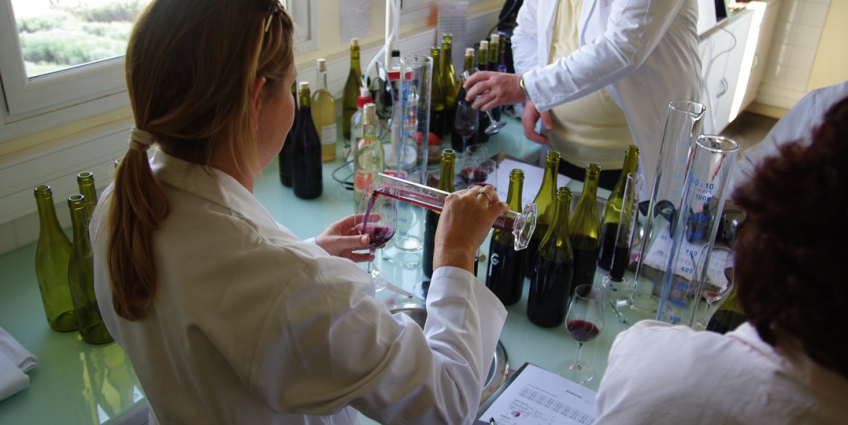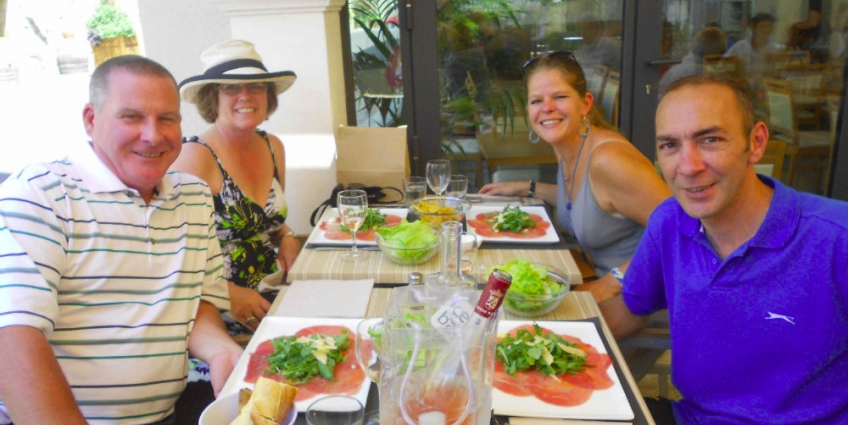For most of us, wine comes from the supermarket or the local wine shop. A lot of thought goes into choosing a wine, and the factors which lead us to make a purchase are emotional and linked to price. Should you purchase white, red or rosé? Is it for a special occassion? Are you looking for a luxury product or something to pair with your dinne?
However, what most people forget is how old winemaking is since it is such a generic consumer product just like orange juice or milk. The thing to realise is that winemaking is a good 6000 years old, as winemaking traces have been found in the former Russian province of Georgia, just above Turkey. A good 3000 years later the courageous Greeks, taking their boats and making new settlements along the coastline of Mediterranean, bring us the first viticulture exposure further west. The Romans build their empire after that and we can see , “where the Romans went, they planted grapes”.
You see, the journey wine has travelled spans the globe, so next time you take a bottle from the shelf it is an opportunity to learn about the history of the wine. And while wine is for drinking, you can widen your horizons beyond simply the taste by discovering its history and composition.
Can we make wine out of everything?
In a sense, yes, by the principle that every kind of vegetable or fruit containing sugar can transform into alcohol with the help of yeast. However, mankind has defined that the wine we talk about refers to fermented “grape juice”.
Can we grow grapes everywhere?
Certainly, because the family of plant life that the grape originates from needs no favourable circumstances. That sounds rather strange as we often think of most fruit and vegetables as needing rich and fertile soil. However, as wine is made in a range of countries, different climates can affect the outcome of the final product.
What is the cultural relevance of wine?
We have already discussed the origin and history of wine which makes it so much more interesting than seeing it just as a liquid that needs to be consumed. While I don’t advocate being “snobby” about wine, I do believe that we have to keep our feet on the ground when acknowledging that wine is an agricultural product. Wines are made by people who are out there in fields and who possess the craftsmanship to bring this to our table.
Agricultural, yes, but throughout its history wine gained a lot of cultural importance becoming a key part in the rituals of world-leading religions. We can only speculate about how many world leaders made an important decision under the influence of a glass of wine during dinner with political supporting or opposing parties.
In our very fast 24-hour economy, where only quick media appearances force us to make reliable judgements, the winemaking seems to be upfront. All grape juices start with a high sugar content and, with the help of yeast, they eventually turn into wine. The yeast “eats up” the sugar and turns it into CO2, carbon dioxide, and Alcohol C2H5OH.
So if we simplify wine, we can ask: “What is wine?”

A scientist might say, “It is 80% water, 12% to 15% alcohol and the last 4 to 5% makes it white, rosé or red!” Scientifically speaking, this is how you can accurately define wine.
But that’s a boring answer… what is it that makes wine interesting? In drinking and experiencing wine you can be propelled back in time through its ancient history, soil and production.
With no doubt, we see through history, that wine is should be combined with food. Here lies the ultimate goal for wine: to make the finest food pairing.
Wine is the final destination for food for the simple fact that we need to satisfy the body with food and liquid. If you are hungry, you will eat the last crumb from the table. If you are thirsty, you will look for the last drop on earth, because we need to satisfy the body. There have been maybe a few moments in your life when you, or your family were extremely sad or very happy. But there are surely a few moments in your life in which you took a spoonful of something in a restaurant, together with a taste from your wine, and in your mind you were saying, “Wow.” This is where all the pieces of the puzzle come together, both “food and wine, were fortifying themselves in a perfect combination.
You still remember which restaurant you were at and what you ate and drank that night. Is that not fabulous? We are talking about the most basic things in life, eating and drinking.
So let us realise next time that if we wish to drink wine, what do want to learn from it?
“Water separates continents, Wine brings everybody together.”

The perfect example for choosing Winerist, for as with our different partners, we wish to make wine more understandable.
Mike Rijken is an experienced tour guide operating in the Rhone Valley. He offers two tours for Rhone Valley enthusiasts during which you can explore either the Northern Rhone Valley or the Southern Rhone Valley.